- Home
- About Me
British wildlife photography and Me
What drives a childhood fascination with photography into a lifelong passion project?
For me, it began with a Kodak Instamatic camera at age eight, a roll of film filled with animal encounters and my grandfather.
Grandad Bill instilled in me a deep love for the British countryside and its inhabitants.
On our walks, he'd effortlessly identify butterflies, bird songs, and even which tree species the leaves on the ground came from. His keen eye spotted tiny wildflowers, for which he would spout both the common and Latin names. He could also decipher animal tracks in earth and snow.
Venturing out with my camera today, I carry his lessons in my heart. I encourage you to take a moment on your next outdoor excursion to observe the world around you.
Try identifying the birds by their calls or noting the plants that thrive in your local area. This mindfulness can deepen your connection to nature and enhance your experiences.
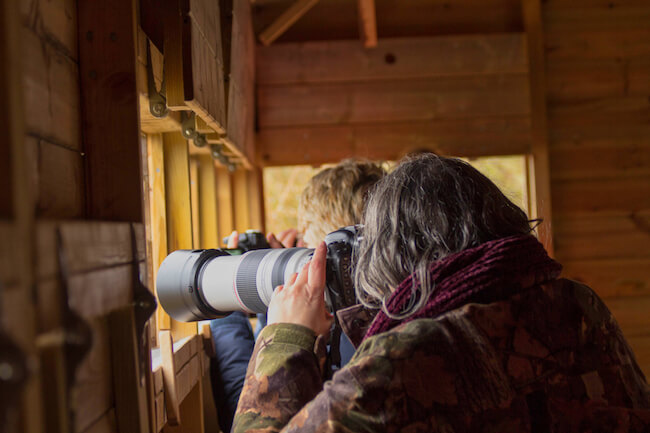 Me in a bird hide at Rutland Water. (Photo Credit to Mel Parsons)
Me in a bird hide at Rutland Water. (Photo Credit to Mel Parsons)My First 'Proper' Camera
After becoming a mother, my camera became an integral part of our family moments. My children grew accustomed to posing in front of the lens.
These were the days when a roll of film only had 24 or 36 frames and had to be sent away to be processed. The costs involved meant that I could only take a few images of each milestone, and it was disappointing to find a week later that I badly exposed some and others were out of focus.
Although I loved photographing the kids, it was animals and nature that called my name.
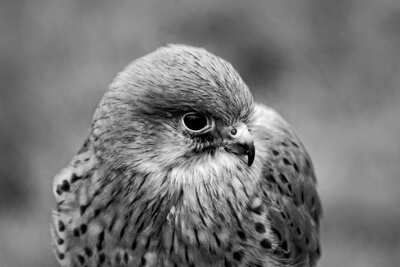 A captive kestrel taken in my twenties (black and white film)
A captive kestrel taken in my twenties (black and white film)Visiting zoos and wildlife parks allowed me to practice, but my heart longed for the chance to track elusive creatures in their natural habitats.
The Transition From Film To Digital
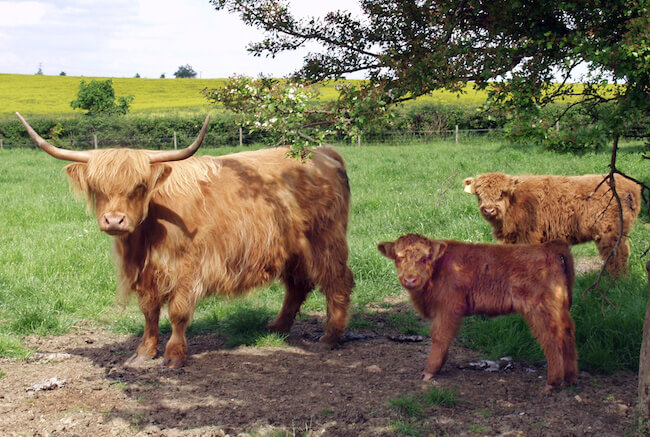 One of my early digital photographs - Highland cattle on a nearby farm
One of my early digital photographs - Highland cattle on a nearby farmAfter around 20 years of enjoying film photography, digital cameras entered the arena.
My first digital camera lacked a preview screen, but it meant I could download my photos straight away to evaluate the results.
An upgrade to a digital single lens reflex (DSLR) camera eventually opened up the possibilities of capturing wildlife up close, with dreamy out of focus backgrounds.
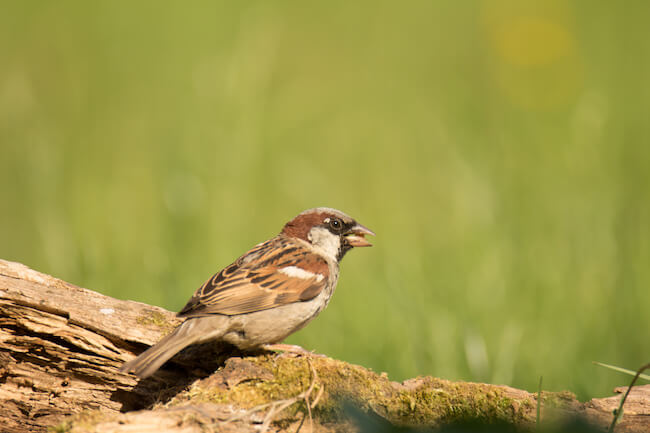 Sparrow taken on my first camera with interchangeable lenses (Canon 100D)
Sparrow taken on my first camera with interchangeable lenses (Canon 100D)As I threw myself into British wildlife photography, I discovered that my subjects were unpredictable. I quickly learned that understanding animal behaviour is as crucial as having the right gear.
Building my skills
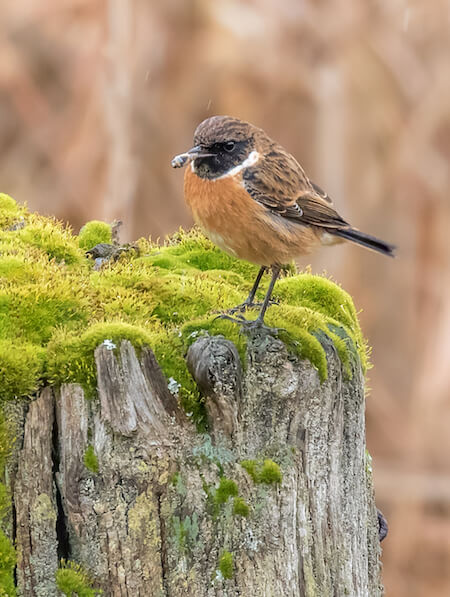 Male Stonechat
Male StonechatAnticipating movements and being prepared to wait—sometimes in harsh weather—has become second nature.
The rush of adrenaline when I finally spot my subject is exhilarating, but it’s the delicate balance of patience, skill, and luck that leads to those breathtaking moments.
Whether rising before dawn, eager to catch the soft light of the golden hour, or braving the elements in search of a rare species, each outing is a lesson in resilience. While it may not yield the desired results each time, the process of learning and adapting still fuels my appetite for capturing the beauty of the countryside and its inhabitants.
Sometime I have to laugh, as I am not sure that photographing a Short Eared Owl just as it poops is what Henri Cartier-Bresson meant by 'The Decisive Moment'.
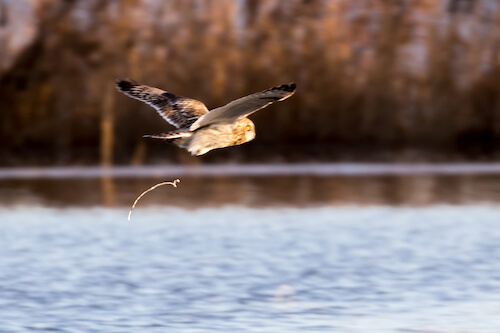 Short-eared owl "pooping" in mid air
Short-eared owl "pooping" in mid airAchievements and Recognition
I began participating in photography contests—not expecting to win, but to measure my work against others in the field.
One of my proudest moments was winning a spot in the Calendar Contest organised by the Beds, Cambs and Northants Wildlife Trusts, where my robin photograph (below) was chosen to represent December.
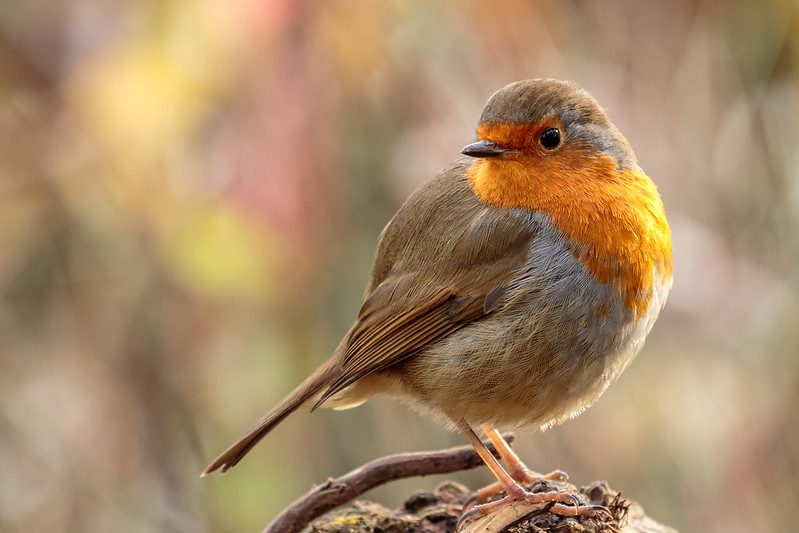
One of our local nature reserves held a photo competition and I was delighted to win three prizes. One of those winning photos, of a Great White Egret preening, is shown on their latest sightings page.
I also secured first place and a runners up prize in a local newspaper’s wildlife photography competition, one of which is shown below and received recognition in various annual contests at a nearby zoo.
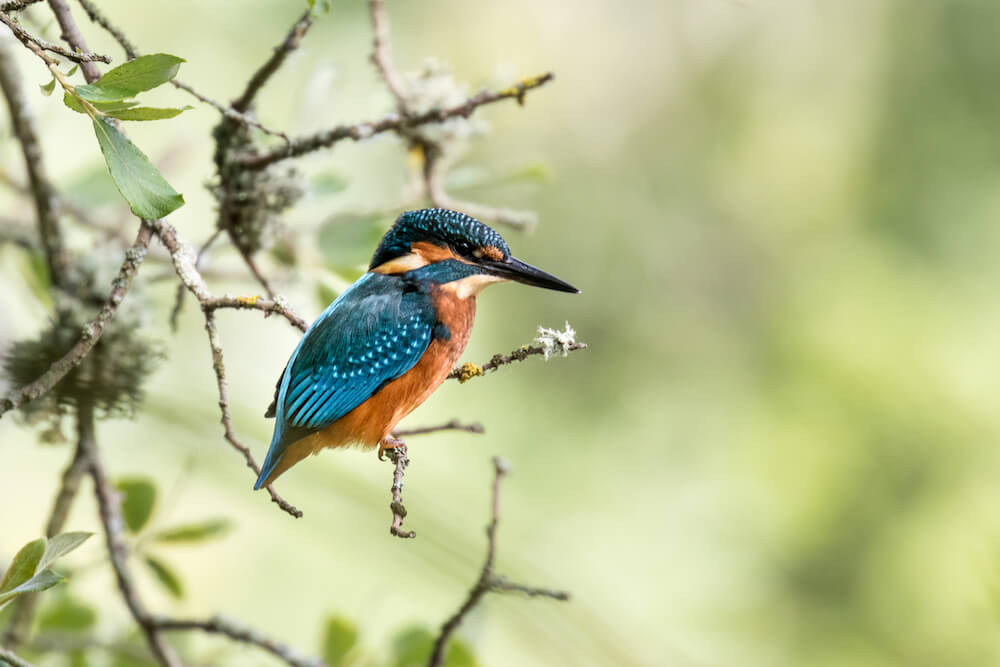
My work has also gained broader recognition, with a photo of a wild rose resplendent with rain drops being featured on a TV weather forecast and another published in Canon EOS Magazine.
These experiences have not only validated my efforts but also inspired me to encourage you to engage with your local photography community—consider entering contests or sharing your work to build confidence and skill.
Join Me on This Journey
Now that you’ve glimpsed my passion for British wildlife photography, I invite you to join me on this journey.
Through these pages, I aim to share not only my experiences and tips but also stunning images that inspire you to appreciate the beauty of wildlife photography.
Engage with me through social media or drop me a message; I’d love to hear your own wildlife photography stories or answer any questions you may have.
Explore your local environments with curiosity and creativity. The natural world is a treasure trove of stories waiting to be told.
So grab your camera, step outside, and let’s discover them together. But before you do that...
don't forget to sign up for my Wild Lens newsletter below. That way you won't miss any additions to the site, or stories of the nature walks and wildlife I encounter on them.
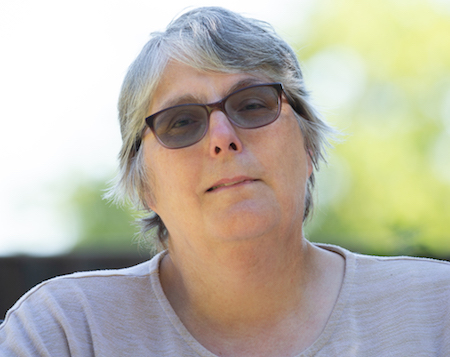
About the Author
I’m a wildlife photographer who learns on everyday walks. This site is my field notebook: practical photo tips, gentle ID help, and walk ideas to help you see more—wherever you are.
Step Behind the Wild Lens
Seasonal field notes from my wildlife walks: recent encounters, the story behind favourite photos, and simple, practical tips you can use on your next outing.